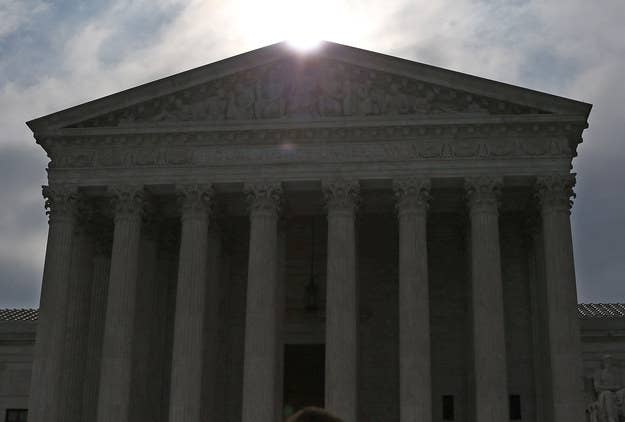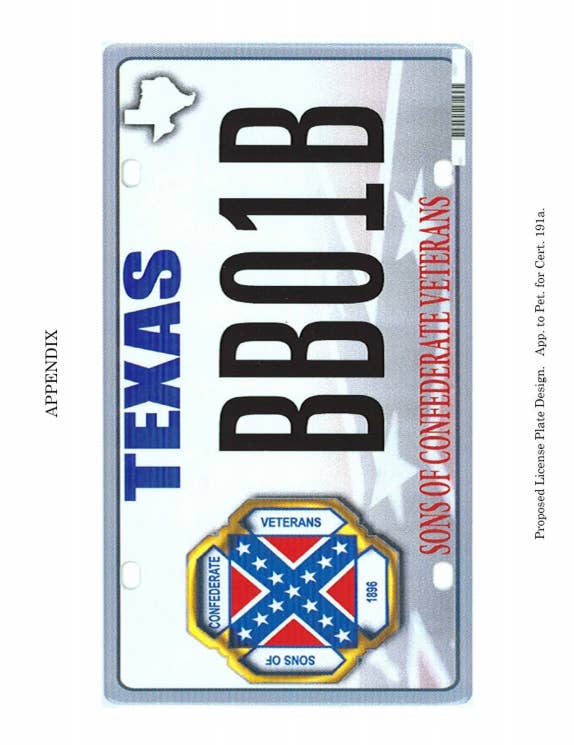
WASHINGTON — The Supreme Court upheld Texas' rejection of a specialty license plate proposal that featured the Confederate flag, ruling Thursday that it was not a violation of free speech rights.
In a 5–4 decision, the court ruled that Texas' speciality vehicle license plates constitute government speech, and the state was therefore within its rights to refuse an application by the Sons of Confederate Veterans.
In a rare move, Justice Clarence Thomas joined the four liberal justices in the majority opinion, which was written by Justice Stephen Breyer.
The Supreme Court had accepted the case after the 5th Circuit Court of Appeals held that such specialty plates are private speech.
"Texas license plates are, essentially, government IDs," Breyer wrote for the court, in deciding the 5th Circuit was wrong as to whether specialty plates are government speech. "And issuers of ID 'typically do not permit' the placement on their IDs of 'message[s] with which they do not wish to be associated.'"
Although the Sons of Confederate Veterans had argued that such specialty plates were not actually government speech but were, instead, an example of the state opening up a forum for private speech, the court rejected that — calling such an argument "misplaced here."
Justice Samuel Alito, joined by Chief Justice John Roberts and Justices Anthony Scalia and Anthony Kennedy, would have found Texas' rejection of the proposed specialty plates to be an unconstitutional violation of the First Amendment.
Here's the Sons of Confederate Veterans' proposed license plate:

